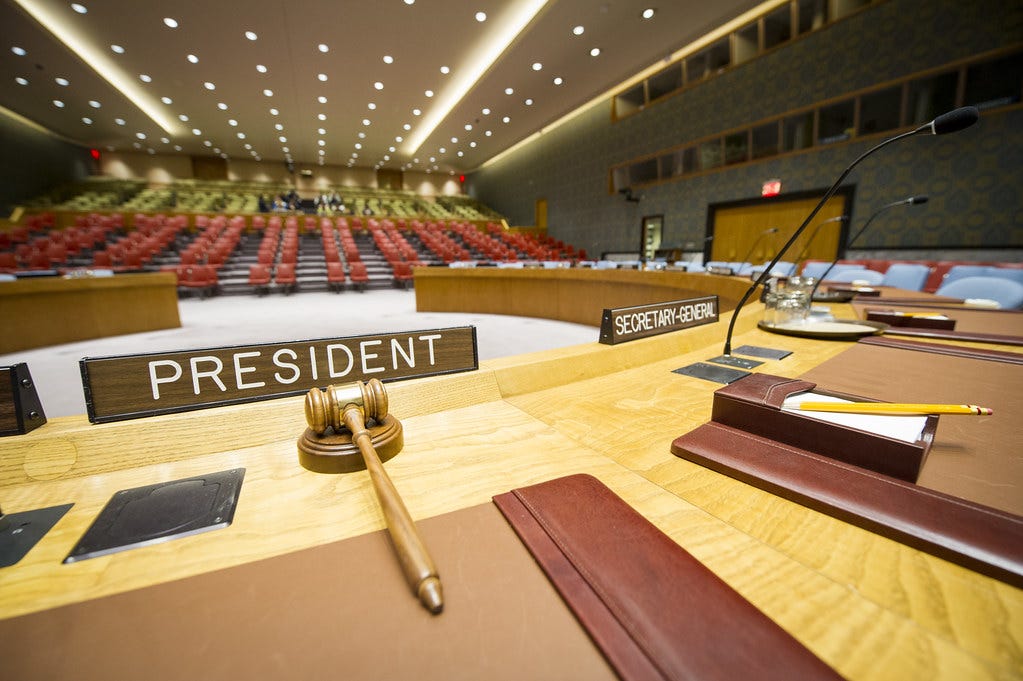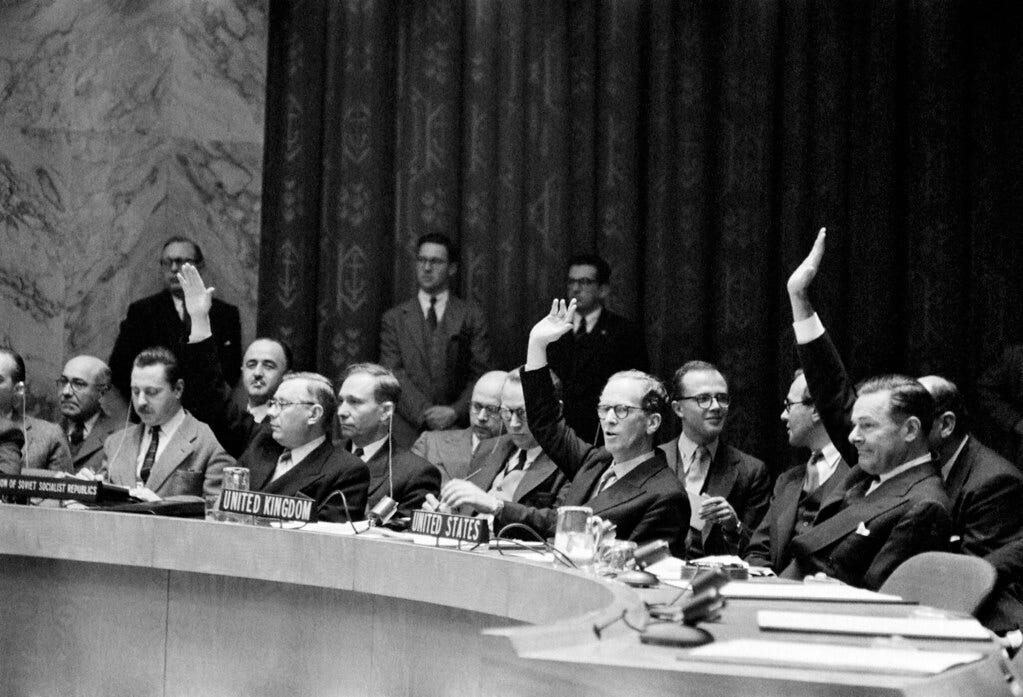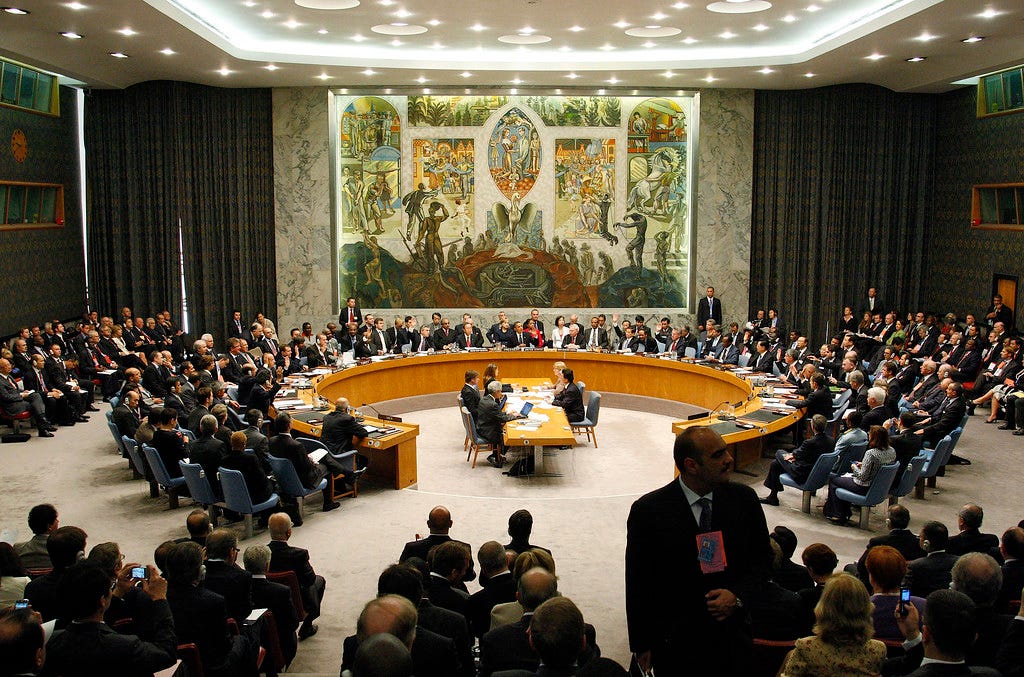The United Nations marks its 80th anniversary: Where is the United Nations headed in the future?
At 80, the UN confronts crises in Ukraine, Gaza, and great-power rivalry. Can supranational governance replace sovereignty, or will fragmentation deepen as global tensions escalate?
As the international situation changes suddenly and the world becomes increasingly turbulent, especially as the Russia-Ukraine war drags on and the Israel-Iraq war is in full swing, the United Nations has been increasingly questioned. Many people have expressed serious doubts about whether the United Nations can still play an important role.
This concern is understandable. Since the outbreak of the Russia-Ukraine war on February 24, 2022, and the Hamas attack on Israel on October 7, 2023, and then Israel started a crazy retaliation mode, the United Nations has been increasingly questioned.
In the past, although NATO bombed Yugoslavia and the United States and multinational forces attacked Iraq, these events could barely be considered to have been carried out under the framework of the United Nations. More importantly, the military operations initiated by both the United States and NATO did not formally occupy the territories of other countries, so they could still be considered to be "peacekeeping."
However, the Russia-Ukraine war that broke out on February 24, 2022, in which the Russian army blatantly launched an invasion of a UN member state and openly occupied Ukrainian territory, this blatant challenge to the UN Charter has actually fundamentally shaken the foundations of the United Nations.
Of course, there are reasons for Russia's invasion of Ukraine. Ukraine violated the agreement and deployed missiles targeting Russia first, and Russia launched special military operations afterwards. However, Russia's attack on Ukraine is a violation of the UN Charter that cannot be denied.
In fact, this also reflects that the United Nations cannot play its due role in the game between major powers. For example, the United Nations did not stop NATO's eastward expansion. In addition, in 2014, Europe and the United States blatantly violated the Minsk Agreement, armed Ukraine, and instigated Ukraine to launch brutal operations against the Russians in Donbass in eastern Ukraine. The United Nations did not stop these actions.
Therefore, when the United Nations has failed to effectively prevent NATO's eastward expansion and has failed to prevent Europe and the United States from violating the Minsk Agreement, it is actually unreasonable to simply criticize Russia's invasion of Ukraine.
In addition to the Russia-Ukraine war, the escalating Palestinian-Israeli conflict is also an important sign that the United Nations order is beginning to collapse.
Since its establishment in 1946 in accordance with the UN resolution, Israel has faced hostility and attacks from Arabs. After the Middle East War, Israel, with the momentum of victory, encroached on Palestinian territory and continuously squeezed the living space of the Palestinians, which eventually led to the tragic attack on October 7, 2023.
The UN Charter cannot effectively restrict either Hamas or Israel, so naturally, the UN's incompetence on the Palestinian issue has become increasingly apparent.
The essence of the United Nations is the product of compromise among major powers
Although the United Nations is the highest arbitrator of the world's countries (in name), it is actually the product of a compromise among major powers. Only when the major powers, especially the five permanent members of the United Nations, reach a compromise can the resolutions of the United Nations be implemented.
The Russian-Ukrainian war on February 24, 2022, was the product of the intensified conflict between the United States and Russia. In other words, the two permanent members of the United Nations Security Council, Russia and the United States, had a fierce collision over the Ukrainian issue.
The United States does not want Russia to rise, and Russia is unwilling to be suppressed by the United States. The contradictions between the two sides are irreconcilable, and finally ended with Russia's invasion of Ukraine.
This is why the United Nations truly lost its effectiveness starting with the Russo-Ukrainian war on February 24, 2022. Although the United States often engaged in aggression before, overall, there were no fundamental conflicts among the five permanent members.
However, after the Russian-Ukrainian war, the contradictions between the five permanent members of the UN Security Council have basically become public.
In addition, the recent Sino-US trade war has also made the contradictions between the two major powers, China and the United States, public. The publicization of such contradictions means the end of the compromise between the major powers in the past, and the possibility of competition and even conflict between major powers is increasing day by day.
The UN resolutions are usually only useful to countries outside the five permanent members, and are basically useless to the five permanent members. Why? Because the number of nuclear weapons in the hands of the five permanent members is enough to ensure that they can do almost anything they want.
This is why the UN resolution calling for an end to the Russo-Ukrainian war was not recognized by Russia, and the UN resolution calling for an end to the Israeli-Palestinian conflict was vetoed many times by the United States.
So, if the UN resolutions are useless to the five permanent members, then isn’t the UN Charter just a dead letter?
In the past, there was some tacit understanding and space for cooperation and compromise among the five permanent members, but now that the United States is declining and China and Russia are rising, the balance of power among the five permanent members has changed, so open and covert struggles among the five permanent members have repeatedly taken place.
In other words, the room for compromise among the major powers is getting smaller and smaller, and accordingly, it will be increasingly difficult for the United Nations to function.
Once the United Nations is unable to function, it means that there will be no rules at all for the struggles between the major powers. At present, there has been no direct military conflict between the major powers, but this does not mean that such military conflicts will not occur in the future.
If a real military conflict breaks out between the major powers, the United Nations will officially be dead.
Future international institutions must be supranational international organizations
From the League of Nations after World War I to the United Nations after World War II, these international organizations claiming to be international arbitrators have repeatedly failed. In fact, the fundamental reason is that they are ultimately the product of a compromise among major powers.
Once conflicts between major powers intensify, these international organizations will naturally lose their effectiveness. Just as the League of Nations failed to prevent World War II, the current United Nations may not be able to prevent World War III. And judging from the current level of Sino-US and US-Russia fighting, World War III is probably not a question of whether it will happen, but a question of when and how it will break out.
So, we may have to think about a question now, that is, what will the future world order be like? Standing on the ruins of the Third World War, what path will we humans take?
That is, international organizations such as the League of Nations and the United Nations, which are based on compromise among major powers, are probably no longer possible, because such international organizations have too weak enforcement capabilities and have no ability to restrain major powers. Once any behavior that undermines the international order occurs, it will be difficult for international organizations to deal with it.
For example, the eastward expansion of NATO by the United States infringed on Russian interests, or America's little brothers like Israel refused to obey the orders of the United Nations and even insulted the United Nations repeatedly, and international organizations were unable to stop it. In the end, it was still difficult to prevent the occurrence of human tragedies like World War I, World War II, and even World War III.
Therefore, the "powerization" of international organizations may be an inevitable development in the future; that is, international organizations may have to control a certain amount of military force to punish or interfere with countries that do not obey the orders of international organizations.
However, this will lead to a new problem, that is, the contradiction between supranational international organizations and sovereign states may gradually intensify.
Supranational international organizations and sovereign states may become the main contradiction in the future world
We have said before that after the outbreak of World War III, mankind stood on the ruins of war, learned from its mistakes, and decided to find a new path for the future world order. This new path is likely to be the power of international organizations, that is, international organizations have a certain amount of military force.
In this case, the contradiction between supranational international organizations and sovereign states will become the main contradiction.
Because "sovereignty is sacred and inviolable" is the criterion followed in the era of sovereign states. If a supranational international organization now wants to dictate to sovereign states, where can the sovereign states put their faces? Therefore, when supranational international organizations gradually become more powerful and begin to interfere in sovereign states, the contradiction between the two will gradually emerge.
This manifestation may be manifested in the form of one or two international diplomatic events. Supranational international organizations must implement international law, while sovereign states, due to the principle of "sovereignty is sacred and inviolable", refuse the management of supranational international organizations, then conflicts are inevitable between the two.
When this contradiction accumulates to a certain extent, it may trigger a new war. We don’t know whether this war will be the Fourth World War, but the intensity of this war will definitely not be too low.
It is difficult for us to predict what the final outcome of this war will be, but what is certain is that it will not be possible for a supranational international organization to gain such power overnight.
There will be many processes involved during this period, especially people's thinking may have to gradually change from the past "sovereignty is sacred and inviolable" to "international law must be observed". This requires a process. Of course, this process may not be visible to our generation, but the general trend should be like this.
The best outcome: a balance between supranational international organizations and sovereign states
The real power of supranational international organizations will inevitably lead to fierce confrontation with sovereign states, which will lead to two results. I think the best result should be a balance between the two.
That is, supranational international organizations manage international affairs, while sovereign states still have to manage internal affairs. This result allows both parties to perform their duties and avoid fierce confrontations of life and death.
After all, fierce confrontations may trigger a new round of world war, which is not good for mankind.
Worst outcome: A supranational international organization dominates the world
There is another result, that is, the supranational international organization unifies the world, and the world is divided into different administrative areas, each of which is managed by different commissioners.
This model completely excludes the existence of sovereign states, which will inevitably lead to fierce confrontation between the two and a new round of global hot war. Humanity may have to pay another generation or two generations of life, and countless homes and cities will be destroyed again, which is what we don't want to see.
However, based on past experience, humans will always choose the worst option, because human nature is really not flattering. Greed, anger, and ignorance, these bad human natures, always make humans choose the worst result, which means that humans will face a new catastrophe.
In general, for now, it is probably a high probability that the United Nations will gradually come to an end, and judging from the opposition and hatred among various human groups, the possibility of the S3 season is gradually increasing, which is also inevitable.











"A supranational international organization dominates the world"
Wouldn't even have to be an overtly governmental organization. Could be something like a very large multinational holding company and/or investment bank. Governments could just be hired as "gig workers", contracted to carry out the work when something needed doing in any particular locality.
Oh, wait...
Kill The United Nations